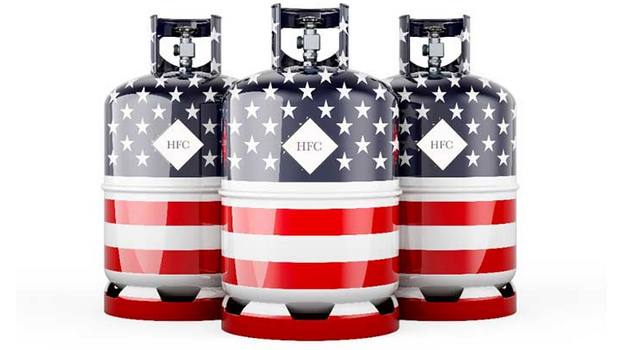US announces 40% HFC cut from 2024

The US Environmental Protection Agency (EPA) has issued a final rule of a 40% cut in the production and consumption of HFC refrigerants from 2024.
The rule aligns with the American Innovation and Manufacturing (AIM) Act, enacted in 2021, which aims to reduce the production and consumption of HFCs by 85% by 2036.
The US phase down began on January 1, 2022, with a reduction of HFC production and imports to 10% below baseline levels. Since then, allowances are needed to import and produce HFCs.
Starting in 2024 the phase down will be 40% below baseline, a significant decrease in the number of available production and consumption allowances compared to previous years. HFC allowances for calendar year 2024 will be allocated by September 29, 2023.
In addition to setting up allowance allocations, an inter-agency task force has been set up to ensure a level playing field for US companies complying with the phase down requirements. Co-led by the EPA and the Department of Homeland Security, the equivalent of more than 1 million tonnes of CO2e are said to have been stopped at the border since 2022.
The EPA also applies administrative consequences, such as revocation and retirement of allowances, for noncompliance that can be in addition to any civil or criminal enforcement action. The EPA has also finalised administrative consequences retiring more than 6.5 million tonnes of carbon dioxide equivalent (CO2e) for calendar years 2022 and 2023 for companies that misreported data or imported HFCs without the requisite number of allowances.
The US has been late to the HFC phase down party following four years of inaction during the Trump administration. It became the 140th country to ratify the Kigali Amendment towards the end of last year, six years after the agreement by all 197 parties to the Montreal Protocol, and more than five years after the first country to ratify – Mali – in March 2017. The US was also the last of all the world’s leading nations to ratify.
Despite this, Joe Goffman, the EPA’s principal deputy assistant administrator at the office of air and radiation, said, without a hint of irony: “This rule making is a critical next step in the Biden-Harris Administration’s ambitious plans to phase down climate super-pollutants and ensure the United States leads the way as countries around the world implement the Kigali Amendment.”
